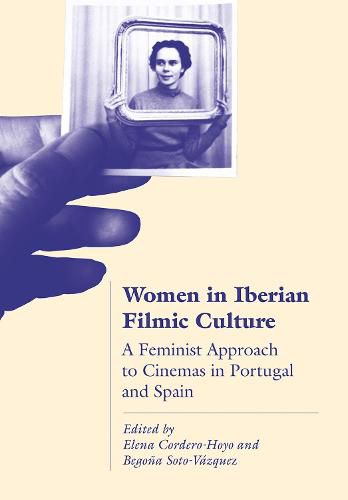Readings Newsletter
Become a Readings Member to make your shopping experience even easier.
Sign in or sign up for free!
You’re not far away from qualifying for FREE standard shipping within Australia
You’ve qualified for FREE standard shipping within Australia
The cart is loading…






Though cinema arrived in Spain and Portugal at the end of the nineteenth century, national and industrial problems as well as the dictatorships of Salazar and Caetano (in Portugal) and Franco (in Spain) meant Iberian cinemas were isolated from European cultural trends. The strict censorship in both countries limited the themes and artistic practices adopted. A specific cinematographic language, in many cases full of metaphors and symbolism, sought alternatives to the imposed official discourse and preconceived definitions of supposed national identities. By contrast, from the 1970s onwards, Spain and Portugal experienced a great change in their societies: the arrival of democracy widened not just the panorama of film production and criticism, but also opened the film industry to women participation in areas historically assigned to men.
Focusing on Portuguese and Spanish cinema, this collection brings together research about women and their status in relation to Iberian visual culture. The volume contributes to ongoing debates about the position of women in the cinemas of Portugal and Spain through a revision of feminist theory as well as new accounts of film history. It also aims to promote comparisons between Iberian cinemas and visual culture from different regions, a topic that is almost unexplored in academia, despite the similar histories of the two Iberian countries, particularly throughout the twentieth century.
$9.00 standard shipping within Australia
FREE standard shipping within Australia for orders over $100.00
Express & International shipping calculated at checkout
Though cinema arrived in Spain and Portugal at the end of the nineteenth century, national and industrial problems as well as the dictatorships of Salazar and Caetano (in Portugal) and Franco (in Spain) meant Iberian cinemas were isolated from European cultural trends. The strict censorship in both countries limited the themes and artistic practices adopted. A specific cinematographic language, in many cases full of metaphors and symbolism, sought alternatives to the imposed official discourse and preconceived definitions of supposed national identities. By contrast, from the 1970s onwards, Spain and Portugal experienced a great change in their societies: the arrival of democracy widened not just the panorama of film production and criticism, but also opened the film industry to women participation in areas historically assigned to men.
Focusing on Portuguese and Spanish cinema, this collection brings together research about women and their status in relation to Iberian visual culture. The volume contributes to ongoing debates about the position of women in the cinemas of Portugal and Spain through a revision of feminist theory as well as new accounts of film history. It also aims to promote comparisons between Iberian cinemas and visual culture from different regions, a topic that is almost unexplored in academia, despite the similar histories of the two Iberian countries, particularly throughout the twentieth century.